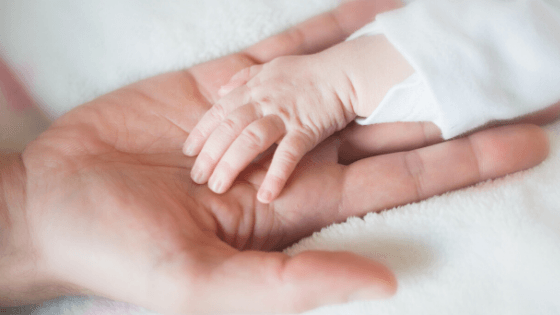Pregnancy, labour, birth and adjusting to a new baby brings about many changes to a woman’s life. While it is a time to celebrate and there are many joys it is not easy to adjust. Baby blues are very common after giving birth and many women experience perinatal depression.

What exactly are baby blues?
Due to fluctuating hormone levels and a lack of sleep you may be experiencing feelings of irritability and being overwhelmed when recovering from births as well as the realization that you’re responsible for taking care of the new little person that entered your life. Baby blues only last a few weeks after giving birth.
However, if you’re feeling depressed and helpless for longer than normal and it is not going away, it’s possible that you’re suffering from perinatal depression.
Information and symptoms of perinatal depression
Perinatal depression occurs during your perinatal period which starts during pregnancy and persists for up to twelve months after giving birth. A lot of focus is placed on postnatal depression, but studies revealed that frequently the depression originates during pregnancy itself.
The term perinatal depression involves both postnatal and antenatal depression and women who experienced postnatal depression during previous pregnancies are at risk of having perinatal depression during their next pregnancies.
If you have experienced postnatal depression with a previous pregnancy, it is vital to disclose this information to your doctor, to ensure that they monitor the situation and provide you with early intervention if you are currently pregnant.
Symptoms of perinatal depression
• An inability or lack of longing to take care of your baby and/or yourself
• Poor appetite
• Extreme fatigue
• Problems with memory
• Feeling sad persistently
• A feeling of hopelessness
• Feeling helpless
• Having trouble sleeping
• Feelings of panic
Treatment
Mild depression can be dealt with through counselling and cases of moderate to severe perinatal depression will require medication.
It’s essential to remember that being depressed does not make you a bad mother, but when depression is left untreated it can lead to neonatal outcomes which can be harmful. That’s why detection and treatment of perinatal depression is key to ensure that a mother can take care of themselves as well as their babies.
 Kaboutjie SA Mommy Blogs by Lynne Huysamen
Kaboutjie SA Mommy Blogs by Lynne Huysamen





I was thinking about all of this… Like am I going through it or what, but I keep on telling myself that I am not going to accept it and it is literally on prayer and my faith that has been keeping me sane. It’s not always easy because I have my moments, I just go quiet, don’t feel like taking care of my baby and think that by not doing something, the rest will catch on to things and maybe step in… But I don’t say a thing, as soon as I see my baby I realise that he means the world to me and I cannot not take care of him. He is just the sweetest little human being, always smiling and that’s what also makes me feel better in the moment.
So I am so grateful for that.
Being a new mom is s hard Jill, I really struggled and my mental health was not great. I hope you have a good support group!
I literally went through perinatal depression and had all sorts of negative thoughts; eventually my organized an intervention because I was in a weird space during my pregnancy. Thank you for this much needed article. So many women go through and have no idea what’s happening with themselves.
I’m in this stage just try to recover from a huge depression and after my c section gave birth and this in your post is what I’m going through thought it’s again depression from previous. Thank you help me so much
I went through the same thing until my daughter was a year old. I would normally feel sad for nothing and for days. Now it just went away. Does that mean I was depressed and got healed or is it just suppressed by something? I, however, feel I will need to go check it out
I’m not a therapist or a psychiatrist Kamo, so I really recommend that you make an appointment with someone that is qualified in these things. I never had anyone diagnose me but I am sure I had PND for 6 months after the birth of my first baby and I did not recognise it at the time. Thankfully I cam out of it and things are much better.
Thank you, This is very important to let people know about this.
Thank you for sharing the difference between the two I found it very helpful